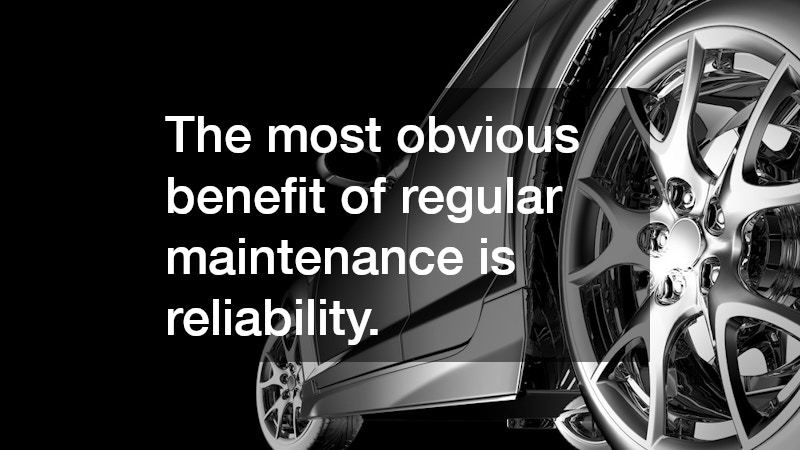
Owning a car offers convenience and freedom, but it also comes with responsibilities. One of the most essential responsibilities of car ownership is regular maintenance. While it might seem like a hassle or an extra expense, routine vehicle maintenance can actually save drivers a significant amount of time, stress, and money in the long run. In fact, regular maintenance plays a vital role in preventing the need for frequent car repair.
The Connection Between Maintenance and Repair
Vehicles are complex machines with thousands of moving parts. Over time, wear and tear is inevitable.
However, when these small signs of wear are ignored, they can lead to bigger problems. Regular maintenance is the best defense against unexpected breakdowns and costly car repair jobs.
Think of maintenance as preventative healthcare for your vehicle. Just like how routine checkups can catch a health issue before it becomes serious, regular inspections and servicing can identify problems early—before they result in major damage.
Key Maintenance Tasks That Prevent Repairs
Here are some critical maintenance tasks that can greatly reduce the likelihood of frequent repairs:
1. Oil Changes
Changing your car’s oil is one of the simplest yet most important tasks. Engine oil lubricates the engine’s moving parts and helps keep it cool. Over time, oil breaks down and becomes contaminated, which can lead to engine wear or even failure. Sticking to the recommended oil change schedule can extend your engine’s life and prevent costly repairs.
2. Tire Maintenance
Proper tire care involves regular rotations, alignments, and pressure checks. Driving on misaligned or under-inflated tires not only affects fuel efficiency and handling but can also cause uneven tire wear. Left unaddressed, this may lead to tire blowouts or suspension issues—problems that could have been avoided with simple checks.
3. Brake Inspections
Brakes are critical to your safety, and they wear down over time. Squeaking, grinding, or slow response times are signs that your brakes need attention. Regular brake inspections can catch worn-out pads or fluid issues before they escalate into more serious—and expensive—repairs.
4. Fluid Checks and Replacements
In addition to engine oil, your vehicle relies on several other fluids: coolant, transmission fluid, brake fluid, and power steering fluid. Each plays an essential role in keeping your vehicle running smoothly. Checking and replacing these fluids according to manufacturer guidelines can prevent overheating, poor performance, and major component failures.
5. Battery Care
Your car’s battery powers everything from the ignition to the electronics. Over time, batteries lose their ability to hold a charge. Regular testing can help you identify when your battery is nearing the end of its life, preventing unexpected breakdowns and towing bills.
6. Air Filter Replacement
An engine needs clean air to operate efficiently. A clogged air filter reduces fuel efficiency and performance. Replacing it regularly ensures your engine can “breathe” properly and avoids unnecessary strain.
Benefits of Regular Maintenance
The most obvious benefit of regular maintenance is reliability. A well-maintained car is far less likely to leave you stranded on the side of the road. But the benefits don’t stop there:
-
Cost Savings: Preventative maintenance is generally less expensive than major car repair jobs. Replacing a worn brake pad, for instance, is far cheaper than replacing damaged rotors or calipers.
-
Improved Safety: Maintenance helps ensure that safety systems like brakes, tires, and lights are working properly.
-
Better Fuel Efficiency: A well-maintained car burns fuel more efficiently, saving you money at the pump.
-
Higher Resale Value: Vehicles with a documented maintenance history tend to retain their value better and are more attractive to potential buyers.
When to Perform Maintenance
Every vehicle comes with a maintenance schedule outlined in the owner’s manual. This guide is tailored to your car’s make and model and is the best resource for knowing when to perform certain tasks. However, some general intervals are widely accepted:
-
Oil change: Every 3,000 to 7,500 miles, depending on vehicle and oil type
-
Tire rotation: Every 5,000 to 7,500 miles
-
Brake inspection: At least once a year
-
Fluid checks: Every oil change
-
Battery test: Twice a year
Paying attention to your vehicle’s performance and listening for unusual noises or changes in handling can also be good indicators that maintenance is needed.
Conclusion
Regular maintenance may seem like a chore, but it’s one of the smartest investments you can make in your vehicle. By staying on top of maintenance tasks, you not only extend the life of your car but also reduce the likelihood of frequent car repair needs. Whether it’s a simple oil change or a detailed inspection, these routine services can save you from major headaches down the road. Take the time to care for your vehicle now, and it will take care of you for years to come.
.



